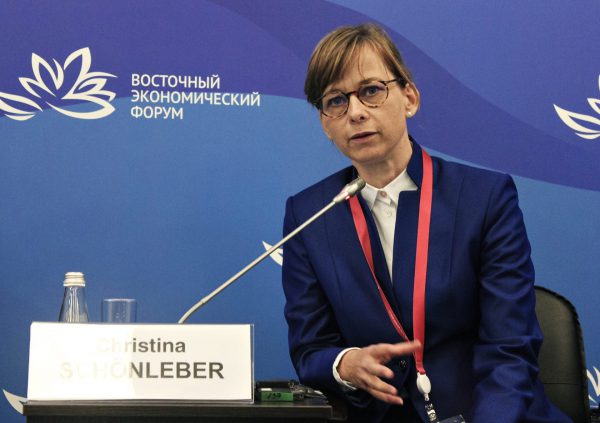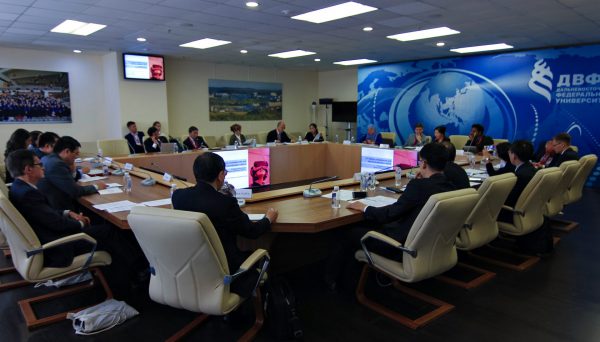APRU is proud to have contributed to the 7th APEC Conference on Cooperation in Higher Education in the Asia-Pacific Region held September 11-12 in Russia’s Pacific Ocean port city of Vladivostok.
The annual meeting since 2012 hosted by Vladivostok’s Far Eastern Federal University (FEFU) involved university presidents, higher education leaders, government official, experts and scholars looking at the key issues of modernization of higher education and its evolving role in the age of the 4th Industrial Revolution.
APRU members Nikita Anisimov, President of Far Eastern Federal University, and Professor Chan Wook Park, Acting President of Seoul National University, provided strong representation at the plenary session moderated by Victoria Panova, Vice-President for International Relations at FEFU, addressing how the digital era is transforming the nature of higher education.
Christina Schönleber, APRU Director Policy and Programs, contributed to Session 3, helping it to meet its stated aim of facilitating a discussion on universities in a multi-stakeholder architecture.

Specifically, Schönleber addressed the opportunities and benefits multidisciplinary collaborations between regional education institutions, local administrations, industry and businesses can provide to human resources development and economic development in the region.
“APRU collaborations and partnerships with industry, businesses and multilateral organizations are a key component to implement impactful initiatives providing insights and framework solutions for governments to build on regional activities,” Schönleber said.
“An example is the latest collaboration between the Asian Development Bank and APRU to better understand the future impact of artificial intelligence on society as well as the impact of aging on the labor market in the Asia Pacific,” she added.
Other APRU members who contributed to the conference discussions were Natcha Thawesaengskulthai, Vice President for Innovation and New Developments, Chulalongkorn University; Li Yan, Director of Curriculum and Learning Science, Zhejiang University; and Tanya Spisbah, Head, Strategic International Engagement, University of New South Wales.
Participants shared best practices, including on promoting digital, distance and blended forms of education.
Another focus was on the assurance of quality and credibility of online and ICT-based learning mechanisms, as well as the creation of new tools for lifelong learning.
The roles and capacities of APEC universities and science and technology parks in terms of producing a quality workforce, stimulating innovation and generating economic benefits were addressed as well.

Day two of the conference featured a Special Session during which draft chapters of the forthcoming APEC Report on Education and Economic Development were introduced.
The report aims to create a synergy of education-related collaborative projects and initiatives among APEC economies through integrating deliverables of the 6th APEC Education Ministerial Meeting.
Keynote presentations were held by Dr. Semyon Korotich, Head of the International Analytics Division, FEFU, and Dr. Habibah binti Abdul Rahim, Director, Educational Planningand Research Division, Ministry of Education, Malaysiaon the topics Education Innovation in a Digital Age and 21stCentury Competencies and Structural Education Reform respectively.
